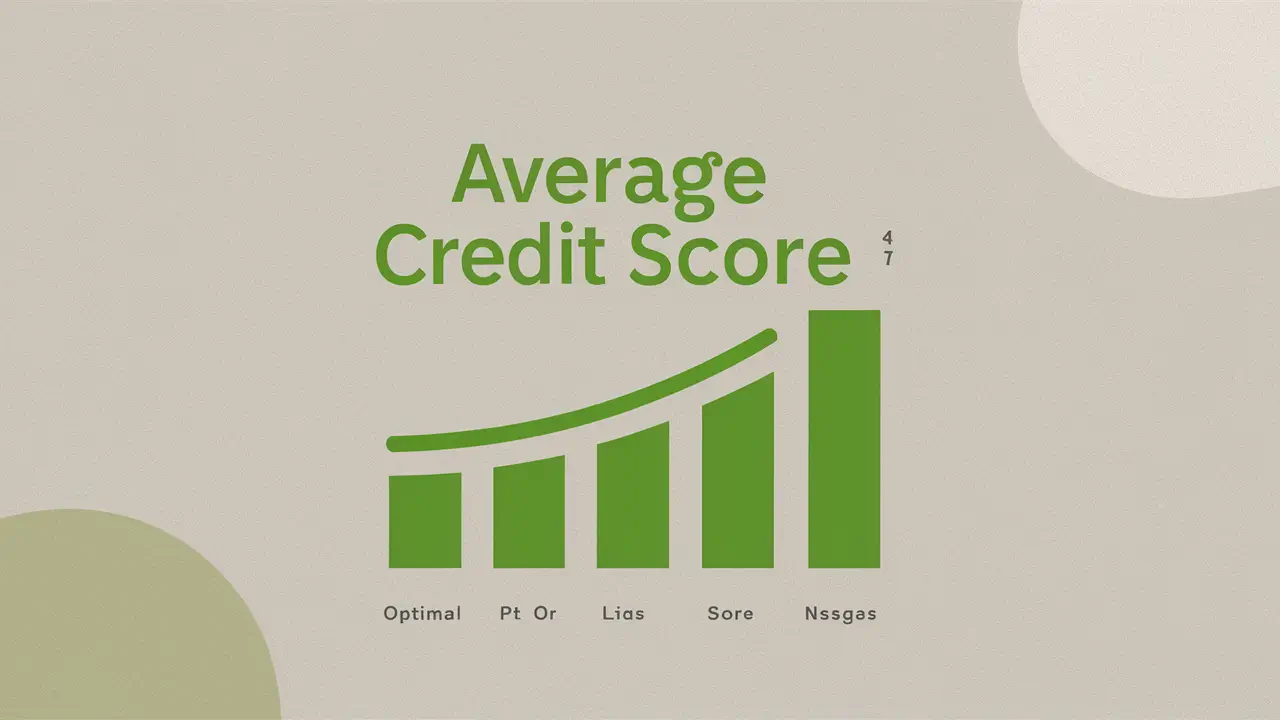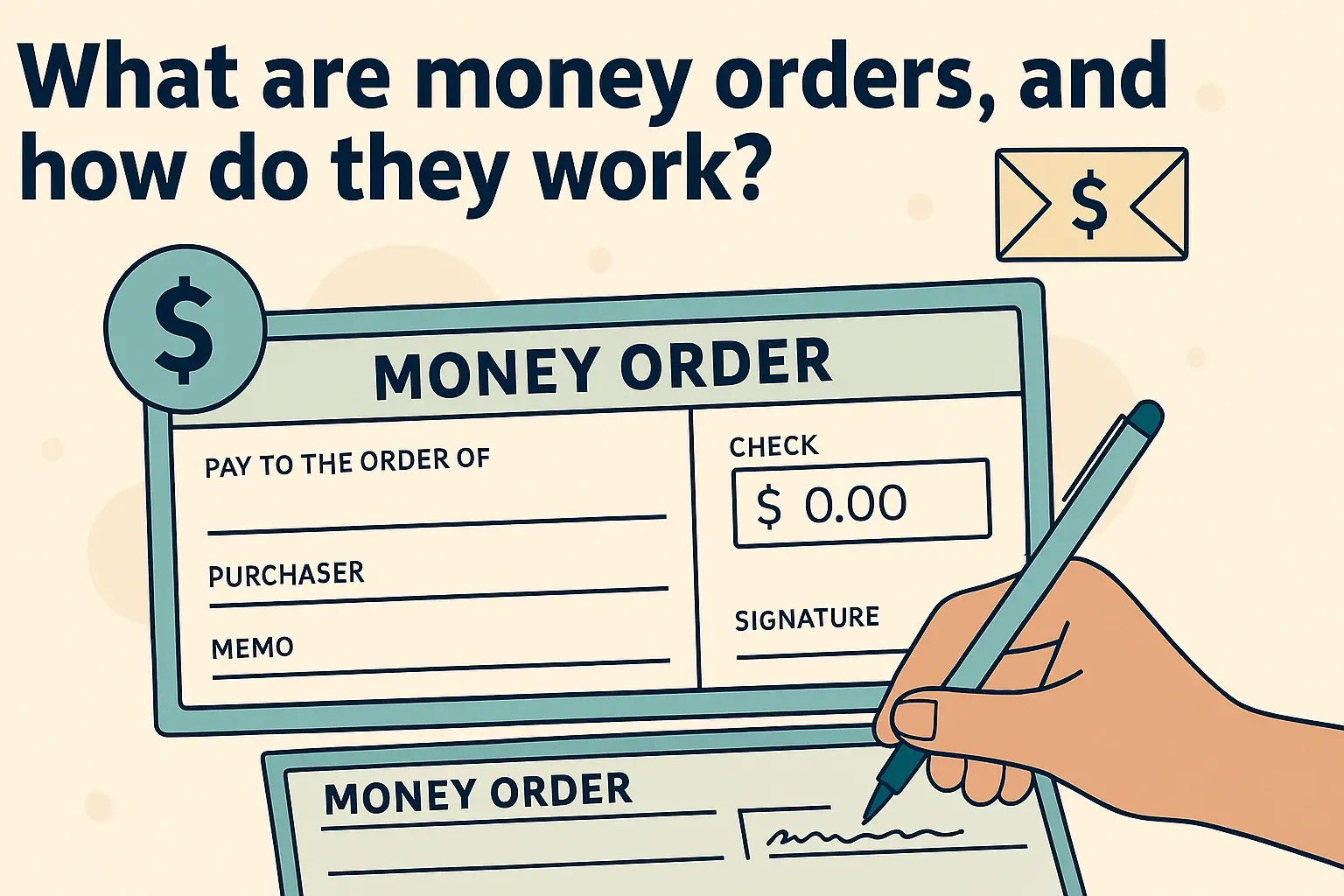-
Posted on: 25 Jul 2024

-
Your credit score is a three-digit number that plays a crucial role in your financial life. It's a snapshot of your creditworthiness, influencing your ability to get approved for loans, credit cards, mortgages, and even rental apartments. Understanding what constitutes a good credit score, and what the average credit score is, can help you gauge your financial health and take steps to improve it.
Understanding Credit Scores
A credit score is a numerical representation of your credit history, based on information reported to credit bureaus by lenders. These bureaus use complex algorithms to generate a score, reflecting the likelihood that you will repay your debts on time. There are two main credit scoring models used: FICO and VantageScore.
FICO Score
The FICO score, developed by Fair Isaac Corporation, is the most widely used credit scoring model. It ranges from 300 to 850, with higher scores indicating better creditworthiness.
VantageScore
VantageScore is a competing credit scoring model developed by the three major credit bureaus: Equifax, Experian, and TransUnion. Its score range is also 300 to 850.
What is the Average Credit Score in the US?
The average credit score in the United States fluctuates over time, influenced by economic conditions, consumer behavior, and other factors. However, we can examine the most recent data to get a general idea of where the average stands.
As of late 2023 and early 2024, the average FICO score in the US hovers around 715. This falls within the "Good" credit score range. It's important to note that this is just an average, and individual scores can vary significantly.
VantageScore, which uses a slightly different algorithm, may have a slightly different average. It generally aligns closely with FICO scores, but the exact average may vary slightly.
Credit Score Ranges and Their Meaning
To put the average credit score into perspective, let's look at the different credit score ranges and what they signify:
- Exceptional (800-850): This is the highest credit score range. Individuals with scores in this range are considered to be at very low risk of default and are likely to qualify for the best interest rates and terms on loans and credit cards.
- Very Good (740-799): This is also considered a strong credit score. Borrowers in this range are likely to be approved for most financial products with favorable terms.
- Good (670-739): The average credit score generally falls within this range. Borrowers with good credit scores are considered to be reasonably creditworthy and can typically qualify for loans and credit cards, although the interest rates may not be as low as those offered to individuals with higher scores.
- Fair (580-669): This is considered a below-average credit score. Borrowers in this range may face challenges in getting approved for loans and credit cards, and they are likely to be offered higher interest rates.
- Poor (300-579): This is the lowest credit score range. Borrowers with poor credit scores are considered to be high-risk and may have difficulty getting approved for credit. They may also be required to pay high fees and interest rates.
Factors That Influence Your Credit Score
Several factors contribute to your credit score. Understanding these factors can help you manage your credit effectively and improve your score over time.
Payment History (35%)
This is the most important factor in determining your credit score. Your payment history reflects whether you have made your payments on time and as agreed. Late payments, missed payments, and defaults can negatively impact your credit score.
Amounts Owed (30%)
This factor considers the amount of debt you owe compared to your available credit. It includes your credit utilization ratio, which is the percentage of your available credit that you are using. Keeping your credit utilization low (ideally below 30%) can help improve your credit score.
Length of Credit History (15%)
The length of time you have had credit accounts open also plays a role in your credit score. A longer credit history generally indicates more stability and responsibility, which can boost your score.
Credit Mix (10%)
Having a mix of different types of credit accounts, such as credit cards, installment loans, and mortgages, can positively impact your credit score. However, it's important to manage each type of credit responsibly.
New Credit (10%)
Opening too many new credit accounts in a short period can negatively impact your credit score. Each time you apply for credit, a hard inquiry is made on your credit report, which can temporarily lower your score. Limit the number of new credit accounts you open to avoid hurting your credit score.
Why Your Credit Score Matters
Your credit score impacts many aspects of your financial life. Here are some of the key reasons why maintaining a good credit score is important:
- Loan Approval: A good credit score increases your chances of getting approved for loans, such as mortgages, auto loans, and personal loans.
- Interest Rates: Individuals with higher credit scores typically qualify for lower interest rates on loans and credit cards, saving them money over the life of the loan.
- Credit Card Approval: A good credit score makes it easier to get approved for credit cards with attractive rewards and benefits.
- Rental Applications: Landlords often check credit scores as part of the rental application process. A good credit score can improve your chances of getting approved for an apartment.
- Insurance Rates: In some states, insurance companies use credit scores to determine insurance rates. A good credit score can result in lower insurance premiums.
- Employment Opportunities: Some employers may check credit scores as part of the hiring process, especially for positions that involve financial responsibilities.
Tips to Improve Your Credit Score
If your credit score is not where you want it to be, there are steps you can take to improve it over time.
Pay Your Bills on Time
This is the most important factor in improving your credit score. Set up reminders or automatic payments to ensure that you never miss a payment.
Keep Your Credit Utilization Low
Try to keep your credit utilization below 30% on each of your credit cards. This shows lenders that you are managing your credit responsibly.
Check Your Credit Report Regularly
Review your credit report regularly to identify any errors or inaccuracies. You can obtain a free copy of your credit report from each of the three major credit bureaus (Equifax, Experian, and TransUnion) once a year at AnnualCreditReport.com.
Dispute Errors on Your Credit Report
If you find any errors on your credit report, such as incorrect account balances or payment history, dispute them with the credit bureau. The bureau is required to investigate and correct any inaccuracies.
Avoid Opening Too Many New Credit Accounts
Opening too many new credit accounts in a short period can negatively impact your credit score. Limit the number of new credit accounts you open and only apply for credit when you truly need it.
Become an Authorized User
If you have a friend or family member with a good credit history, you can ask them to add you as an authorized user on their credit card account. This can help you build your credit history, as the account activity will be reported to your credit report.
Consider a Secured Credit Card
If you have a limited credit history or a poor credit score, a secured credit card can be a good way to build or rebuild your credit. A secured credit card requires you to make a security deposit, which serves as collateral for the account. As you use the card responsibly and make timely payments, your credit score will gradually improve.
The Future of Credit Scoring
The landscape of credit scoring is constantly evolving. Alternative data sources are increasingly being explored to supplement traditional credit report information. This could include things like utility bill payments, rent payments, and even bank account data. The goal is to create a more inclusive and accurate assessment of creditworthiness, particularly for individuals who have limited or no traditional credit history.
Furthermore, discussions are ongoing about how to address biases that may exist in current credit scoring models. Efforts are being made to ensure that credit scoring is fair and equitable for all individuals, regardless of their background or demographics.








